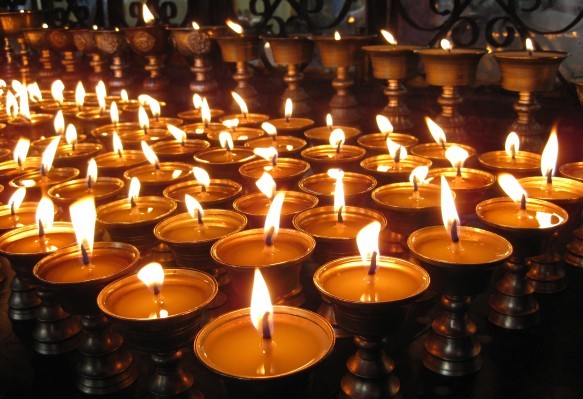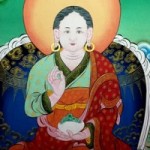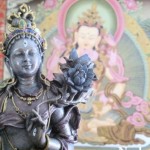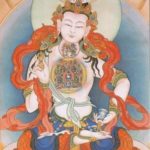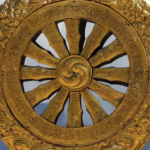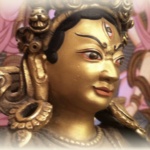3) Is there any reason not to donate one’s body parts at the time of death?
I will write about several approaches to this question.
Giving the Body as Generosity
There is a traditional story, a Jataka tale, of the Buddha’s past life before he became a Buddha. While walking in the mountains he happened upon a mother tiger and her cubs. They were starving to death and about to die. He laid down his body to feed it to her so that she and her cubs could live. In the story she does not eat him right away because he is the Buddha. But he prompts her and insists and in the end her and the cubs lives are saved. So there is Buddhist precedent for using one’s body to help save the lives of others.
Leave the body untouched for 3 days
The question probably arises due to another consideration – how to handle a corpse.
The traditional Tibetan Buddhist method of dealing with a corpse is that the body is left untouched for up to three days (or sometimes longer in the case of greatly realized people). So the traditional Tibetan methods for handling the corpse would not facilitate organ donation.
The body is left untouched for three days because the moment of death is not the moment that the respiration ceases but the moment the consciousness disconnects from the physical body. The body is not disturbed in order to facilitate that transference to happen in the optimal way.
From my experience, one comforting thing about not disturbing the corpse is that the loved ones are not immediately removed from the presence of the deceased. They can remain there and have time to adjust to the passing of their loved one.
In the Tibetan context where there was sky-burial practice, it would be possible to leave the body undisturbed for three days and then still donate the corpse for the benefit of the beings. The body was taken by Buddhist yogis who specialized in corpse disposal. They would take it to a hill top, chop it up and prepare it to be fed to the birds. Vultures would then come and feast. This would be the final act of generosity of the deceased person. The vultures are the symbol of a gentle lifestyle. They wait around and eat your body when you no longer need it!
However in the North American context, there are laws that govern the disposal of corpses, leaving the body for three days or feeding to be birds would be illegal. So additional considerations have to be made.
For Buddhists, the Lamas could be consulted to see help with the “transferrance of consciousness” and so potentially in that case, perhaps the body can be made ready for disposal or for the donating of organs. Perhaps this would allow for observing tradition and also observing the profound opportunity for organ donation.
So in the spirit of the Buddha’s example in the Jataka tale and the offering of one’s corpse to birds, the donation of one’s organs could be seen to be a crucial opportunity for one last act of generosity before one dies. Acts of generosity and saving others lives, as organ donation could accomplish, would generate enormous positive benefit. This positive benefit is known in Buddhism as “merit,” a force of positive momentum. The Buddhist tradition believes that such positive action such as saving lives will also help the person who has done this action. It will accumulate positive momentum that will help that person in the post-death and future life. So this is why Buddhists save lives in the name of loved ones and “dedicate the merit” to that loved one.
Practically speaking we can think of organ donation as a kind of accumulation of positive intentions and actions that fill up the time period of dying and death. This is a time in which one would otherwise be focused on fear and self-clinging. Instead, the focus becomes compassion, generosity, helping others – the goal of the Buddhist path is to be in such states, to use one’s live to help others and help relieve suffering is the goal of the path.
Fulfillment of Training
Another benefit may be there for those who practice Chod, a Buddhist meditation practice which focuses on visually rehearsing the experience of death in order to realize freedom from fear and clinging. In that visualization one is intentionally visualizing that one’s own corpse is being dismembered and given to pay off karmic debts, to feed and help beings. It is the ultimate symbol of non-dual awareness, letting go of that which is most precious to care for others. Therefore being an organ donor would be not as shocking since it will be a situation one has psychologically prepared for.
Family Wishes
There is a third factor – the issue of the persons family. Death, like life, is not only an individual experience, but a social one. The loved ones and family’s views and wishes may also need to be considered. They will be a part of this process. Keeping harmony among the family of the person passing can be another important final act of compassion. One thing I witnessed is that the family of the deceased may be escorting the body – which is being kept on life support – to preserve the organs. They may or may not know their loved one chose to donate. They may or may not believe in this due to their religious beliefs. Considering their experience is also an important factor to weigh. If it is traumatizing to the family members that is something signficant also.
There is no perfect black and white answer for such decisions. One has to consider the beliefs about dying, death and the proper handling of the corpse. One has to consider the family. However there is Buddhist precedent for giving one’s body to save the lives of others. It has an extraordinary positive potential to be of great help to others.
Further practices
If one cannot donate the corpse, then other practices can still be done to fulfill similar intentions. For example, lives of others can also be saved by giving donations to help save the lives of others, charitable contributions to organizations or clinics that save lives, donations to support medical care for others or life-release practice where animals that would be killed are purchased and set free instead. Another practice that has been done is having one’s loved ones and family members eat vegetarian meals at the funeral or for a period after the death in order to dedicate the positive benefit, the “merit” of saving of lives to the deceased.
Here is a link to arrange for a Buddhist Lama to do the death rites for your loved ones.
Here are the Links to the series Below.
Also related- the prayer we read to those dying. Although it requires some training and transmission, reading about it can be beneficial to help understand what important learning could happen during the period before death.

